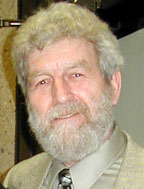 |
Mass Bolivian revolt against US-Imposed drug warBy Chuck Armsbury, Senior Editor
"At 8 a.m. on Sunday, September 30, Benito Espinoza Cuba, a 25-year-old taxi driver, lost his life when he fell to the ground near the K'ora bridge in Vinto after being hit in the head by soldiers who shot indiscriminately at all "suspected blockaders." His companions, who resisted the Army's invasion, dragged the body of the youth 200 meters to a private house with the hope of saving his live, but the efforts were in vain: he died instantly," wrote NarcoNews. The US-backed Banzer regime has taken to violence against civilians to quelling the multitude of protests that have paralyzed this nation for two weeks. The mass protests only grow stronger, however, and the Banzer regime, if it does not back off its hard-line stance, could fall within weeks, days, even hours, according to NarcoNews.
Coca growers oppose the eradication of coca fields and the construction of military bases in Chapare. Banzer's government suspended the construction of the bases but refuses to stop the eradication. Furthermore, the peasants reject the Water Resources Law and demand modifications in the land reform law. The peasants want the project annulled, contending that it's at the root of the popular struggle against the privatization of the resource of water. Eight months ago, the report continues, "the center of the conflicts was the city of Cochabamba, where the Coordination for the Defense of Water and Life led a movement called the water war that mobilized the city and the entire country. During the confrontations between the uniformed soldiers, police and the citizens, a student died and more than 30 people were wounded. The principal demand was that the Aguas del Tunari consortium - that had raised the price of potable water in prior weeks more than 100 percent - go away. And that's what happened." The Narco News Bulletin names the journalists and photographers of the daily newspaper Los Tiempos (LosTiempos.com) of Cochabamba, Bolivia as Heroes of the Month for September 2000. NarcoNews insists that if only a fraction of the United States media were as conscious, courageous and independent as this major daily, there would not be a hypocritical drug war. Visit NarcoNews at: www.narconews.org |
 According
to a Press Briefing dated October 1, 2000 from NarcoNews.com,
Bolivian troops shot at civilians protesting President Hugo Banzer's
regime. Despite silence from US media, the events in Bolivia
are becoming more grave by the hour. At blame, says the communiqué,
"is the US-imposed war on drugs and the refusal of Banzer's
regime to deviate from US policy of total eradication of the
coca crop", including the produce for non-harmful chewing
of coca leaf by Bolivian indigenous and popular sectors.
According
to a Press Briefing dated October 1, 2000 from NarcoNews.com,
Bolivian troops shot at civilians protesting President Hugo Banzer's
regime. Despite silence from US media, the events in Bolivia
are becoming more grave by the hour. At blame, says the communiqué,
"is the US-imposed war on drugs and the refusal of Banzer's
regime to deviate from US policy of total eradication of the
coca crop", including the produce for non-harmful chewing
of coca leaf by Bolivian indigenous and popular sectors. Narco News Bulletin
condemns the near-total blackout of news from Bolivia by English-language
press agencies. The only wire service to cover the September
30th shooting of civilians by Bolivian military troops was Reuters.
Associated Press, on the other hand, is keeping its newspapers
and readers in the dark, and in a just world would fall with
the Banzer regime, asserts the Bulletin.
Narco News Bulletin
condemns the near-total blackout of news from Bolivia by English-language
press agencies. The only wire service to cover the September
30th shooting of civilians by Bolivian military troops was Reuters.
Associated Press, on the other hand, is keeping its newspapers
and readers in the dark, and in a just world would fall with
the Banzer regime, asserts the Bulletin.